All products featured are independently chosen by us. However, SoundGuys may receive a commission on orders placed through its retail links. See our ethics statement.
Please stop blasting your Bluetooth speaker in public
August 23, 2025
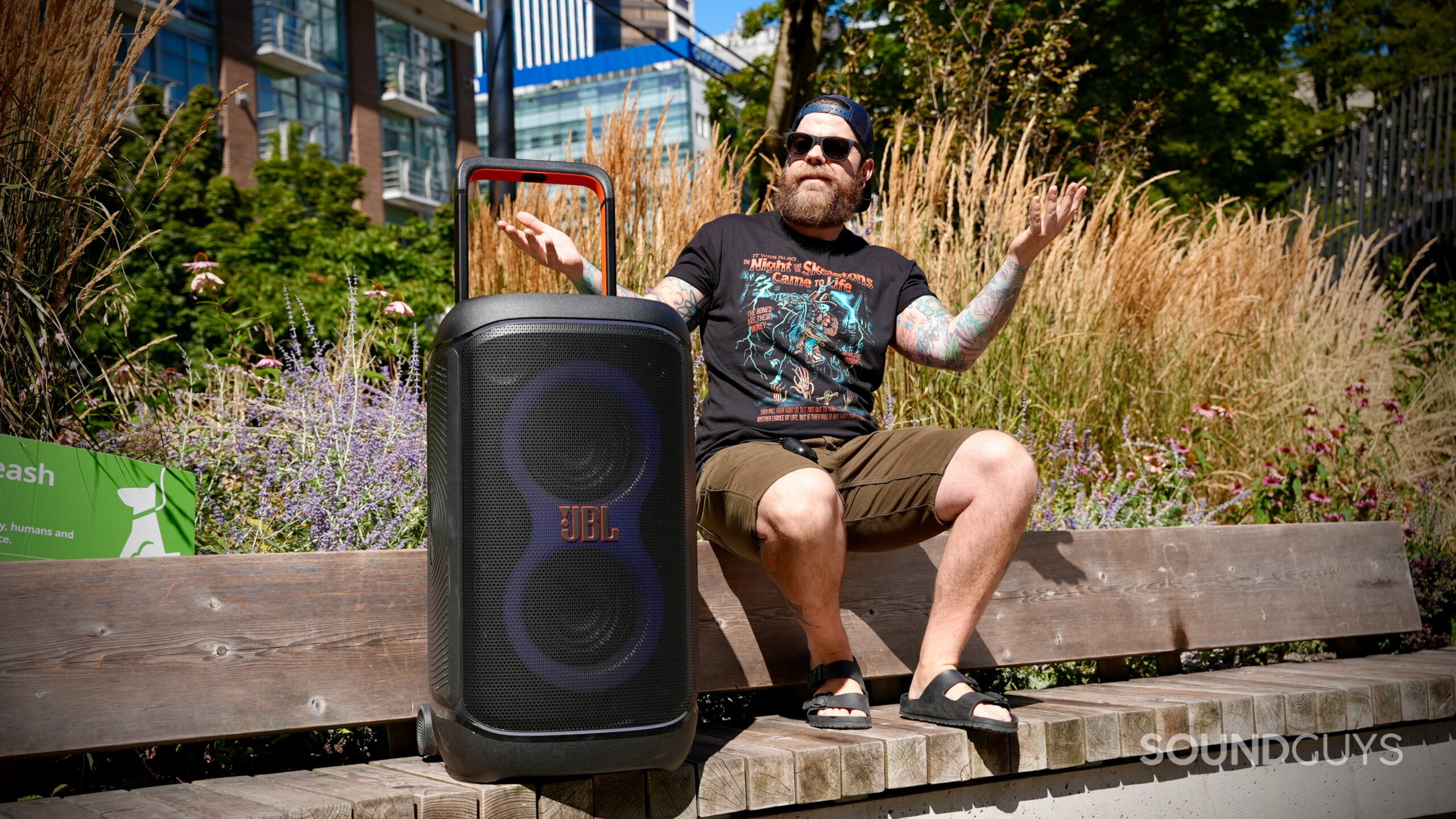
It’s a classic scenario. You find a quiet spot at the beach or a shady patch in the park. You’re relaxing, soaking up the sun, listening to the ocean waves or wind through the trees. Then it happens. You hear it. The pulse of a bassline bleeding from someone else’s portable Bluetooth speaker. It’s not your music. It’s not your vibe. But now it’s your problem.
I review Bluetooth speakers for a living. I’ve tested hundreds, from the ultra-portable to rugged party boxes that can rattle windows. I’ve also played guitar in heavy metal bands for 20 years. I’m no stranger to loud music. But I spend a lot of time outside too. I go camping, swim at the beach, and hike whenever I can. And nearly every time I’m out in nature, especially during the summer season, I feel like I’m always waiting for someone’s Bluetooth speaker to show up where it really shouldn’t. I’m not anti-music, but it ruins the moment when I’m trying to enjoy nature and someone nearby starts blasting a playlist.
Do you think it’s okay to play music out loud in public spaces?
Why blasting music outside is a problem
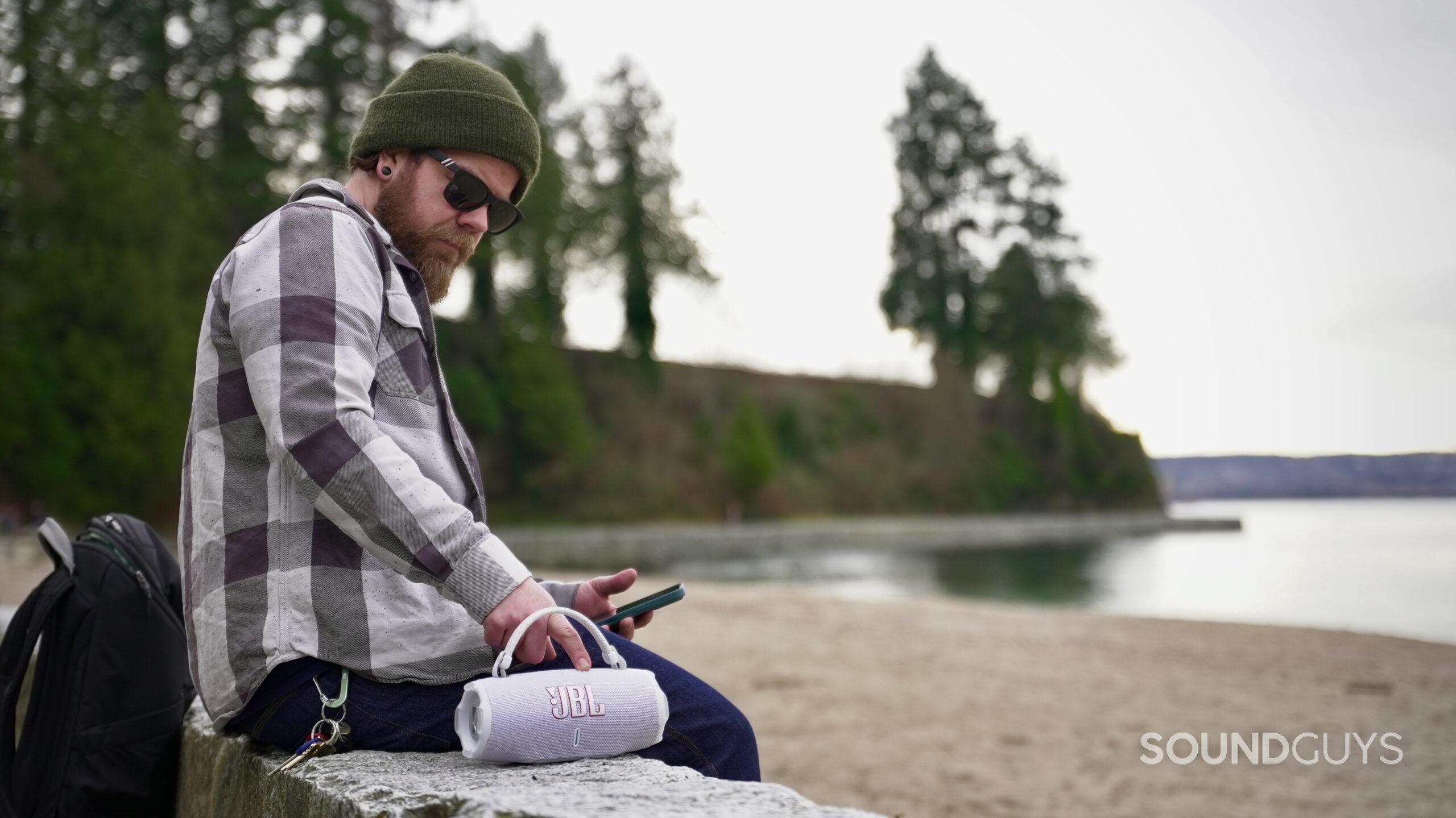
Playing music out loud might feel harmless. You’re outside, enjoying yourself, and the volume seems reasonable. But in shared spaces like parks, hiking trails, or beaches, loud music isn’t just a personal choice. It becomes a public disruption.
Natural environments, especially forests and beaches, are some of the only places where people can find solitude and reflect, think, or even meditate in peace. The quiet is the point. It’s part of what makes those places feel calm and restorative. When someone starts playing music, it changes the experience for everyone around them—and no one else asked for that.
Common excuses, and why they fall flat
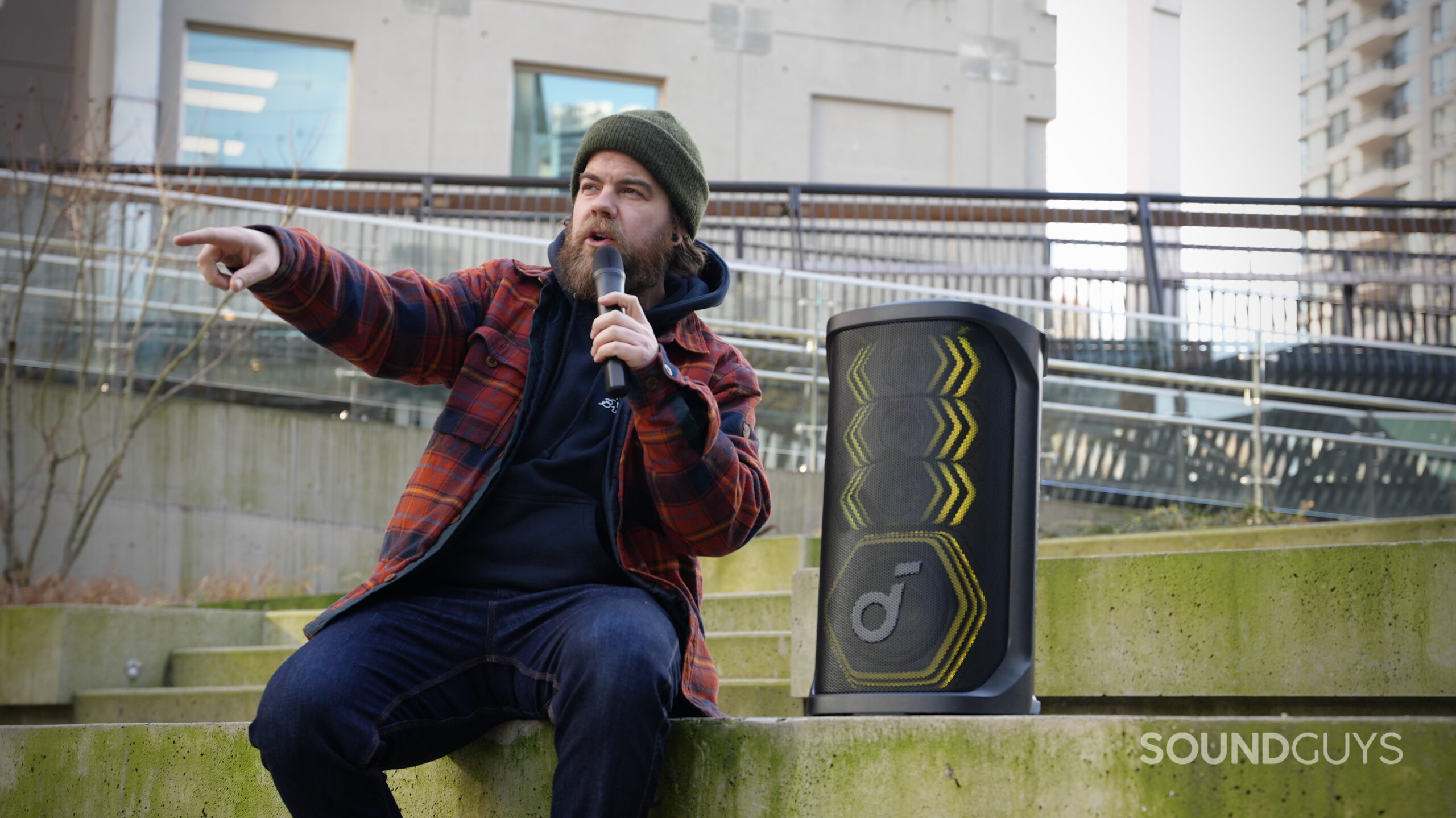
Some people think that because they are outside, they can do whatever they want. They argue that parks and beaches are public, so blasting music from a Bluetooth speaker is fair game. But public does not mean yours. Shared spaces belong to everyone. That means your enjoyment should not come at the expense of someone else’s.
Others claim their speaker is “not that loud, bro” or that “nobody else is complaining.” But sound carries differently outdoors. Even moderate volume can be heard from far away on a quiet trail or open beach. The reality is, most people will not confront a stranger about it, and I’m guilty of that myself. I’m not a confrontational person, and the last thing I want is to argue with someone while trying to enjoy beach time with my family or friends. Just because no one says anything does not mean no one is annoyed.
There is also the idea that music makes everything better. That might be true at a party or around a campfire at a secluded campsite with friends, but out in nature, music competes with the sounds that are already there: birds, waves, wind, and silence. Those are not boring. They are part of the reason people go outside in the first place.
How to listen to music outdoors without annoying everyone
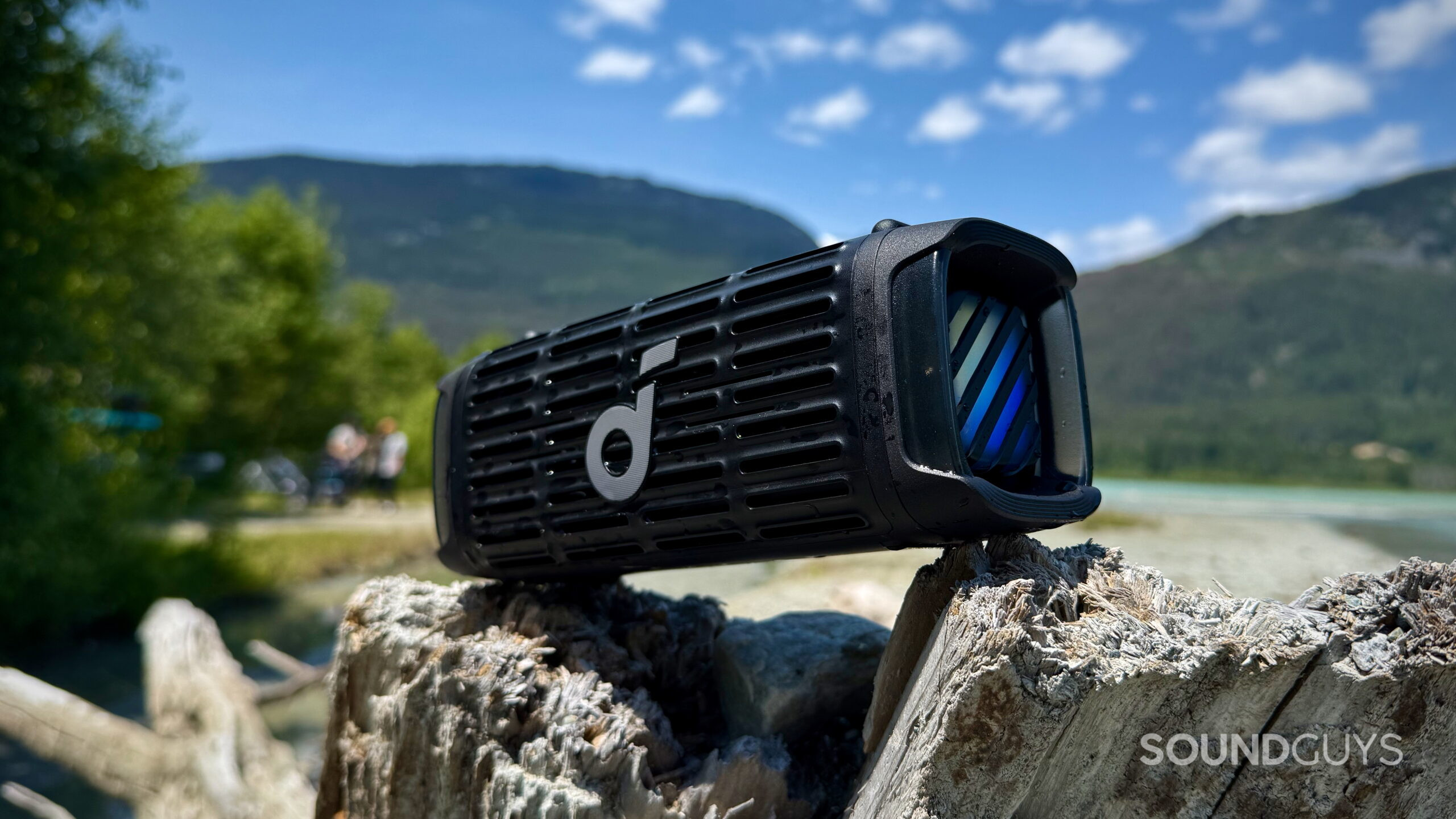
Look, I get it. Your favorite playlist makes moments better, whether you’re watching the sunset on a hot summer night or having a few beverages with your pals around a campfire. If you’re by yourself, the answer is simple: bring headphones or earbuds. Not only are you being considerate, but you’re also getting better sound quality than any portable speaker can offer. Plus, transparency mode on a good pair of earbuds means you can still hear the waves or your buddy calling from across the beach.
A little awareness goes a long way.
But if you’re with a small group, it really just comes down to common courtesy. Play your music at a reasonable volume, not loud enough to dominate the space, just loud enough for your group to enjoy. And watch your bass levels. Bass travels further than most people realize, especially outdoors. That deep thump can carry well beyond your blanket and into someone else’s peaceful afternoon.
Also, think about speaker placement. Angle it in toward your group, not aimed out toward the rest of the park or beach. Directional sound matters more than people think; even small adjustments can mean the difference between creating a vibe for you and your friends and disrupting someone else’s.
Why protecting natural soundscapes matters
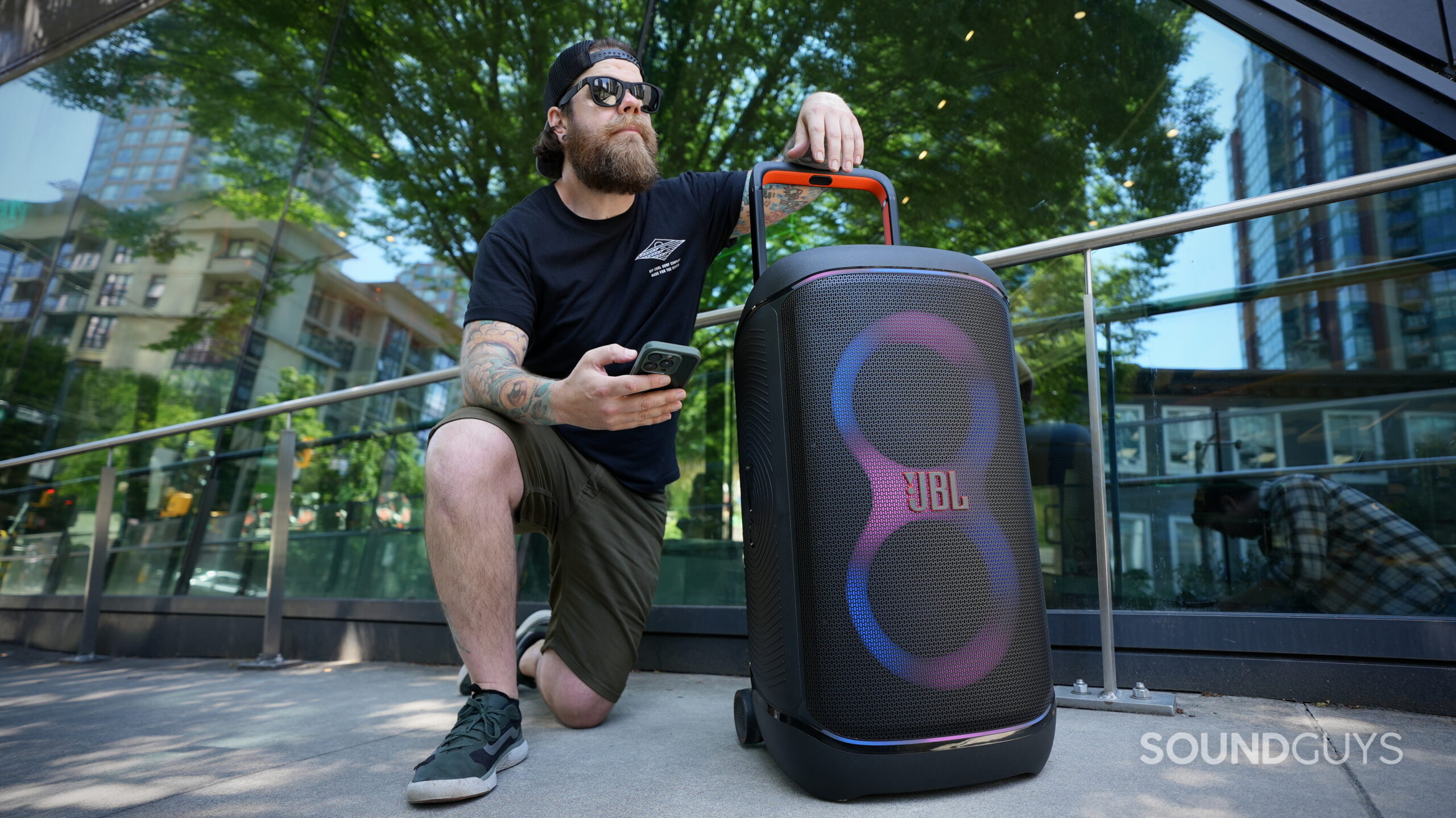
The quiet of nature is not just empty space. It’s part of the experience. The sound of waves or the crackling of a campfire isn’t background noise. They’re the main event. When we bring our own soundtracks into those environments, we change them. Sometimes for ourselves and our friends, but almost always for others.
Being respectful with your music is a good start. But it’s also worth asking why quiet matters in the first place.
I’ve spent enough time outside and reviewing speakers to know that volume (and especially bass) is power. But power without awareness becomes a problem. It’s not about being the fun police or banning music from beaches. It’s about preserving the parts of the world that still offer peace. A public space is not a personal stage.
So next time you pack a speaker, think about where you’re headed. If it’s a crowded park or campsite, maybe ask yourself if your music is a welcome addition or just another layer of noise. A little volume control and a little courtesy go a long way.
Nature doesn’t need a soundtrack. Sometimes it’s better just to listen.
Thank you for being part of our community. Read our Comment Policy before posting.